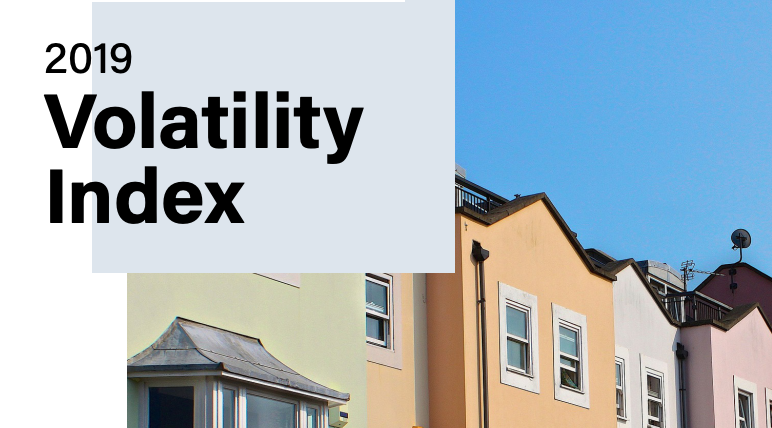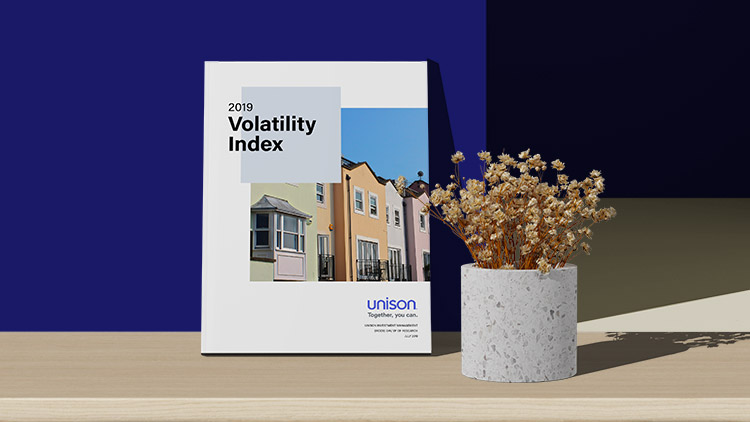In the U.S., we generally consider homes a bedrock investment. They’re a key anchor of many Americans' financial portfolios - and, increasingly, their retirement plans. But is that wise?
Today Unison Investment Management published a groundbreaking Home Volatility Index (read the executive summary and full white paper), showing that a single home is actually a pretty risky asset - as volatile in value as a stock market index. And homeowner portfolios have exposure to the risk of residential real estate far beyond what’s optimum - due to the combination of low interest rates and very low- downpayment mortgages.

The index shows that the long run average annualized volatility of home price appreciation has been approximately 15% per year since 2000 - one percentage point higher than equity stock indices.* Home volatility spiked to more than 35% per year in the heat of the 2008 financial crisis, suggesting that, like equities and fixed-income securities, financial risk of residential real estate is amplified during a financial crisis.
New home buyers are particularly vulnerable to this risk, the index shows, because they often cash out their entire liquid portfolios to make a down payment.
Does this mean you shouldn’t buy a house - or should sell the one you own? No, absolutely not. At Unison, we’re big believers in the American Dream.
It does mean that when you’re thinking about buying and owning a home as part of your financial portfolio, you should be aware of the risk of having your wealth over-concentrated in a single asset. And a home is not just an asset - it’s where you live with your family. And it shouldn’t be where you take excessive risk.
That’s why we think equity sharing is the new normal.
Unison connects aspiring homebuyers and existing homeowners with institutional investors who offer debt-free access to cash for the chance to share in a home’s appreciation. Our HomeOwner program allows homeowners to unlock equity in their home to pay off debt, remodel or fund a major purchase. Both programs give you a steady partner, and reduce the amount of capital you have tied up in your home.
This isn’t a loan, which means there are no monthly payments and no interest. If the home depreciates, then Unison shares in the loss.
Owning a home is still a smart investment. But putting all your eggs in one basket isn’t a smart strategy.
The content on this page provides general consumer information. It is not legal or financial advice. Unison has provided these links for your convenience, but does not endorse and is not responsible for the content, links, privacy policy, or security policy of the other websites.
